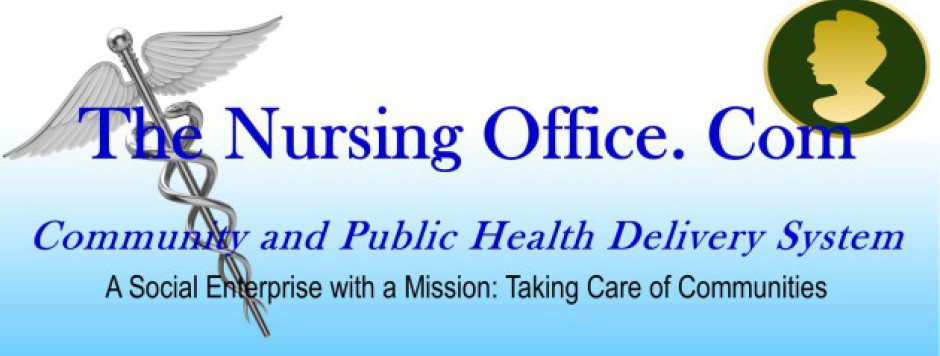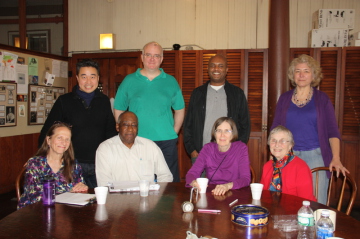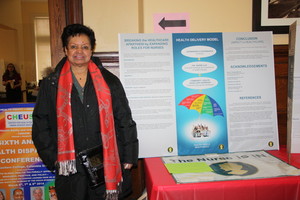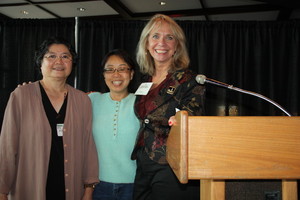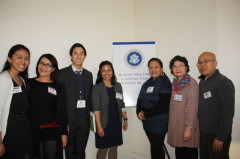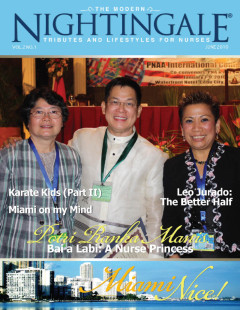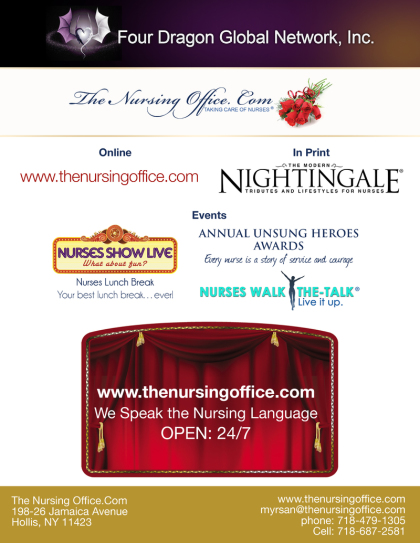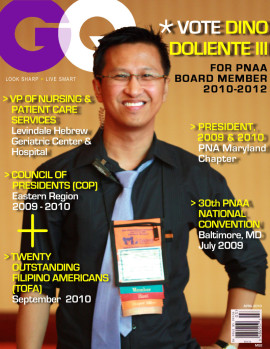Transforming Healthcare Through Nursing Leadership
The Future of Nursing
Nursing Leadership in the Days of COVID
As a nurse in this unprecedented time of Corona Virus pandemic, I cannot help but find a way to help the community and do my share in this greatest challenge of the 21st Century in the heights of technical, science, medical, financial and social developments.
In my musings in FB which became one of the widest venues of connections and information channel, I have conceptualized a way to use it as a tool to this Actual Real-Time Descriptive Research on the COVID -19 that continue to claim lives and resources, a global plague.
This descriptive research will include a wide range and extensive review of literature and content about a virus that came and kill, from the joint perspective of every scientists, doctors, nurses and the community that has in anyway affect the way the individuals and the world respond to live and survive in this uncertain time from an unseen enemy, a virus known as COVID-19.
In this Pandemic Era, the government leaders are called to protect its people, from the highest laws of the land, not to instill fear but convince the millions to comply and do their individual share of survival. As the world keep on standstill and lockdown, people of all faith keep their Trust and Hope in God for Divine Intervention.
~Myrna D. Santos, MSN, RN
The FUTURE of NURSES
Nurses lead change and advance health
As the biggest workforce in healthcare and the most trusted to care in the community, hospitals celebrate their nurses on Nurses Week, every second week of May.
While nurses felt their appreciation on these special days, there are comments and buzz in the air: “We need more than these mugs and cakes, water bottles and pens…” Nurses are very simple people and easy to please, just give them these gifts and they will be alright.
Yet, nurses are the most valuable part and asset of healthcare, serving 24/7, 365 days a year. They are professionals, trained for the highest level of care, they deliver their excellence in clinical practice, they are tired, and they need to be conserved as dear as endangered species.
Hospitals should change their culture in the way they look at nurses. They should take care of their nurses 24/7, 365 days a year. If they will only think of ways to lead change and improve healthcare and get the most from the nurses’ full extent of training and education.
And this is how hospitals should appreciate and celebrate nurses: promotion to the next level of practice as Clinicians. Let nurses lead change and advance health. This is the future of nursing.
The Future of Healthcare
Why more nurses are needed in the boardroom
The health care system is changing rapidly, and both providers and patients would benefit from having more nurses making policy as part of the boards of health systems, write Susan B. Hassmiller, director of the Future of Nursing: Campaign for Action, and Susan Reinhard, chief strategist for the AARP's Center to Champion Nursing in America. Nurses make up the largest segment of health care workforce but hold just 6% of hospital board seats. "Nurses already play a huge role on the frontlines. It's time they begin playing a role in the boardroom too, bringing both their practical sensibilities and view of patient care experiences to the table," they write.
By SUSAN B. HASSMILLER AND SUSAN REINHARD
Tribune News Service December 18, 2014
NURSES: The Future of Healthcare
GOALS: The new imperative for nurses will require a truly diverse, experienced and committed set of leaders to: Shaping healthcare system,Increasing access to delivering better care,Minimizing costs for both consumers and business,Assuming roles in healthcare coaching, prevention activities and quality improvements.
OBJECTIVES:Discuss critical issues and concerns facing professional nursing education and development, Address unique challenges in delivery of healthcare,Development of strategies for effectively managing challenges encountered in the workforce.
Nurses are Leaders Everyday
In today’s state of nursing shortage, it is beyond every nurse’s hand and shoulders to meet the needs of the public. There will always be a shortage and the only way we can take care of the people is through effective leadership. How can nurses possibly take care of the community? As the health of the world is in nurses’ hands, we have to do more than the physical caring of the acutely ill. We are the team coach for health maintenance. We teach them, we mobilize them to take care of themselves. We teach them by the principle that nursing is based on a self-help and self-preservation theory. Nobody will survive but the fittest, outsmarting the circumstances and his environment.
Whether you are in the acute care setting or in the arena of public health, the principles are the same, and the long term goal is the same: to keep everybody alive and healthy functioning human being. While that is a difficult task, you are the leader every day and that is your challenge.
Ingredients of Success as a Leader:
· Commitment
· Truth
· Excellence
· Mental Toughness
· Discipline
· Habit
· Results
· Passion
· Heart and Caring
Do you have it in you?
HOW DO YOU LEAD?
While some leaders are born with responsibilities to lead, like the princes and kings of the past centuries, the modern leaders are made and trained. Today, leaders abound in every sector of society. With the nursing shortage, there is only one way to go: Train Nurses to Lead. This way, the people are mobilized to care for themselves.
· Walk the talk.
· Keep it simple and keep it real.
· Celebrate successes.
· Know that courage matters.
· Keep hope alive.
· Take responsibility.
· Develop a “service attitude.”
· Aim for the heart.
· Make a difference whenever and wherever you can.
EMOTIONAL INTELLIGENCE & YOU
There are six critical things that great leaders do that really stand out. Any of us can do the same.
1. They’re kind without being weak One of the toughest things for leaders to master is kindness. Kindness shares credit and offers enthusiastic praise for others’ work. It’s a balancing act, between being genuinely kind and not looking weak. The key to finding that balance is to recognize that true kindness is inherently strong—it’s direct and straightforward. Telling people the difficult truth they need to hear is much kinder than protecting them (or yourself) from a difficult conversation. This is weak.
True kindness also doesn’t come with expectations. Kindness is weak when you use it in a self-serving manner. Self-serving kindness is thin—people can see right through it when a kind leader has an agenda. Think of Schultz, who dedicated $250 million to employee education with no strings attached, and as soon as employees finish their degree, they are free to walk out the door. That’s truekindness.
2. They’re strong without being harsh Strength is an important quality in a leader. People will wait to see if a leader is strong before they decide to follow his or her lead or not. People need courage in their leaders. They need someone who can make difficult decisions and watch over the good of the group. They need a leader who will stay the course when things get tough. People are far more likely to show strength themselves when their leader does the same. A lot of leaders mistake domineering, controlling, and otherwise harsh behavior for strength. They think that taking control and pushing people around will somehow inspire a loyal following. Strength isn’t something you can force on people; it’s something you earn by demonstrating it time and again in the face of adversity. Only then will people trust that they should follow you.
3. They’re confident, without being cocky
We gravitate to confident leaders because confidence is contagious, and it helps us to believe that there are great things in store. The trick, as a leader, is to make certain your confidence doesn’t slip into arrogance and cockiness. Confidence is about passion and belief in your ability to make things happen, but when your confidence loses touch with reality, you begin to think you can do things you can’t and have done things you haven’t. Suddenly it’s all about you. This arrogance makes you lose credibility. Great, confident leaders are still humble. They don’t allow their accomplishments and position of authority to make them feel that they’re better than anyone else. As such, they don’t hesitate to jump in and do the dirty work when needed, and they don’t ask their followers to do anything they aren’t willing to do themselves.
4. They stay positive, but remain realistic Another major challenge that leaders face is finding the balance between keeping things positive and still being realistic. Think of a sailboat with three people aboard: a pessimist, an optimist, and a great leader. Everything is going smoothly until the wind suddenly sours. The pessimist throws his hands up and complains about the wind; the optimist sits back, saying that things will improve; but the great leaders says, “We can do this!” and he adjusts the sails and keeps the ship moving forward. The right combination of positivity and realism is what keeps things moving forward.
5. They’re role models, not preachers Great leaders inspire trust and admiration through their actions, not just their words. Many leaders say that integrity is important to them, but great leaders walk their talk by demonstrating integrity every day. Harping on people all day long about the behavior you want to see has a tiny fraction of the impact you achieve by demonstrating that behavior yourself.
6. They’re willing to take a bullet for their people The best leaders will do anything for their teams, and they have their people’s backs no matter what. They don’t try to shift blame, and they don’t avoid shame when they fail. They’re never afraid to say, “The buck stops here,” and they earn people’s trust by backing them up. Great leaders also make it clear that they welcome challenges, criticism, and viewpoints other than their own. They know that an environment where people are afraid to speak up, offer insights, and ask good questions is destined for failure.
7. Bringing It All Together Great leadership is dynamic; it melds a variety of unique skills into an integrated whole. Incorporate the behaviors above into your repertoire, and you’ll see immediate improvement in your leadership skills.
ETHICAL PRACTICE, QUALITY CARE
We celebrate National Nurses Week, this May 6, 2015 which ends on Florence Nightingale’s birthday May 12th with the theme “Ethical practice; Quality care.” In this essence, we recognize the importance of ethics in nursing and acknowledge not only the strong commitment, compassion and care that nurses display in their practice and profession, but the continuous efforts in delivering safe, effective, and high quality care with strong base of ethical principles and values.
The National Nurses Week focus is an important part of American Nurses Association’s 2015 Year of Ethics outreach efforts to promote and advocate for the rights, health and safety of nurses and patients, and to increase awareness among the public about the role nurses play in providing ethical, high quality health care.
Robert McDonald, Secretary of Veterans Affairs, has committed that “RNs will be full partners in designing and leading the future delivery of services to veterans. VA nursing has taken the lead in efforts that drive VHA’s transformation into a 21st century healthcare organization. We welcome and value their leadership." (05/12/2015)
THE ETHICAL ACTION TEST
If you are doubtful about the righteousness of any decision, you may use this guide to make sure.
- Is it legal?
- Does it comply with our rules and guidelines?
- Is it in sync with our organizational values?
- Will I be comfortable and guilt-free if I do it?
- Does it match our stated commitments and guarantees?
- Would I do it to my family or friends?
- Would I be perfectly okay with someone doing it to me?
- Would the most ethical person I know do it?
And, if an action or decision does not pass the test...you may need to develop an alternate strategy or seek for advice.
I AM GUILTY, ARE YOU?
Something did not happen; the intension missed; the damage is done. It takes more than a person to accept it and more professionalism to approach it responsibly. While you can deal with mistakes in so many ways easily, you will choose to act and approach it the hard and yet positive way, the way it will become a part of you forever.
I can still remember the mistakes I made from my youth when survival rather than wisdom is guiding me. It is because these mistakes guided me to perfection. Without these mistakes and genuine acceptance, I could have remained evil, however, I chose to accept it, acknowledge it, learn from it, correct it, that now, I can tell people how to deal with their mistakes.
It is a part of our human nature to commit mistakes,” To err is human” and there is nothing wrong with that, until you accept and make up for it, that same mistake will never happen again.
Designing Leadership for the Changing Healthcare
A viewpoint from the article “Is Experience Overrated?”
written by Karlene M. Kerfoot, PhD, RN, CNAA, FAAN
Published in Nurs Econ. 2013;31(1):39-40.
At a time when we need creativity and innovation to guide the country through the transformation of health care, unfiltered leaders should be in high demand. While we cannot under stress the value of experience, we look at the leadership of those who come from a different viewpoint and specialty, somebody who looks at the "big picture" beyond the health care system and those who achieved health care experiences outside of the hospital.
In designing leadership for the changing healthcare, we have to question the judgment of those looking exclusively for candidates with experience, rather than valuing the potential contribution of clever, innovative people with broad experiences. It would be interesting to follow the pathways of people we turn away in health care. Are we doing the right thing, or creating lost opportunities for health care to learn and grow from outsiders whose thinking is not filtered through the usual socialization of the inpatient, procedure-centered model of health care?
Unfiltered leaders have two pathways in new organizations: they are most commonly highly successful and surpass the outcomes of the filtered leader, or they are unsuccessful. Filtered leaders rank in the middle and are surpassed by some unfiltered leaders but also are more successful than some unfiltered leaders who fail. Unfiltered leaders are complementary to organizations that need innovation and new pathways for the future. Organizations that do not see the need for change are better suited to hire filtered leaders. Abby would qualify as an unfiltered leader both from her intention to learn outside the traditional health care model and also with her lack of experience as a CNO. Several organizations chose not to take a chance on her, but one did, and she was very successful.
Summary
Major transitions and transformations are in our future as we begin to implement the various changes in the new health care reform environment. New programs developed with old thinking and leaders who have filtered their thinking through previous models will not be successful. Imagine an inpatient unit with a mix of nurses who have worked in home care, ambulatory care, and industry and a manager with ex perience as coordinator in an insurance company. This unit could lead the way in the transformation of health care to a community-based model because they would already be familiar with what is needed and they could easily jump the firewalls of traditional health care. And also imagine if Abby were the CEO of that hospital. This team would be ideal for our future.
Sidebar
Executive Summary
- Major transitions and transformations are in our future as we begin to implement the various changes in the new health care reform environment.
- New programs developed with old thinking and leaders who have filtered their thinking through previous models will not be successful.
- We need people with a variety of experience to help us see our way through the new forest of health care reform – many of those could be outsiders.
- Outsiders can be very successful if health care leaders can be open to different and successful models that have been effective elsewhere.
- We must find these people and successfully recruit them to our organizations.
- Collins, J. (2001). Good to great: Why some companies make the leap– and others don't. New York, NY: Harper Business.
- Mukunda, G. (2012). Great leaders don't need experience. Harvard Business Review, 90(11) 33–36.
- Thorndike, W.N. (2012). The outsiders: Eight unconventional CEOsand their radically rational blueprint for success. Boston, MA: Harvard Business Review Press.
Is Experience Overrated?
Karlene M. Kerfoot, PhD, RN, CNAA, FAAN
Nurs Econ. 2013;31(1):39-40. © 2013 Jannetti Publications, Inc.
More than 10 Commandments of Leadership
Here are some of the clear attitudes and behaviors of leaders that practice what they preach. They...
- Keep their promises and honor their commitments.
- Really have an “open door.”
- Follow ALL the rules and regulations.
- Treat everyone with courtesy and respect.
- Are upbeat and positive.
- Tell the truth.
- Are polite and considerate.
- Are prompt and prepared for work and meetings.
- “Own” their behaviors and “own-up” to their mistakes.
- Think before they act.
- Solve problems rather than “celebrate” them.
- Pursue win-win outcomes.
- Give their best effort.
- Display initiative.
- Are dedicated to learning and continuous improvement.
- Deal with disappointments and set-backs constructively.
- Are committed to the organization and its mission
These are taken from the book of Eric Harvey & Steven Ventura “The 10 Commandments of Leadership”
Leadership Excerpts from Walkthetalk.com
Excerpted from
The Essence of Leadership
On March 5, 2003, I turned on
Good Morning, America while eating breakfast. Charles Gibson was interviewing General Earl Hailston, the commanding general of Marine Forces Central Command. The general was waiting with his
troops just a few miles off the border of Iraq…waiting to go to war. General Hailston is the only general in the armed forces who had enlisted and came up through the ranks, and as he spoke, I was
impressed by his humble and caring attitude.
Toward the end of the interview, his answer to a question touched me deeply. When Charles asked him if he had any hobbies outside of his work, the general said, “Yes, I love photography, especially
taking photos of my men.” He shared that while he had been waiting for the past few days he would take photos of his men, and at night he would email the photos with a brief note to their mothers
back in the USA. Charles asked if he could see a sample of a letter, and the general walked into his tent, turned on his computer, and read the last letter he had sent. It said:
Dear Mrs. Johnson,
I thought you might enjoy seeing this picture of your son. He is doing great. I also wanted you to know that you did a wonderful job of raising him. You must be very proud. I can certainly tell you
that I’m honored to serve with him in the U.S. Marines.
General Earl Hailston
PS: Please feel free to share this newsletter with your friends, family and co-workers. You have permission to use this content in your newsletter or email system as long as you do not edit the content and you leave the links and this resource box intact. WALKTHETALK.com
GOLDEN NUGGETS
On FEAR
- Fear is the only thing to fear.
- Fear is your weakest and strongest weapon in life.
~Myrna D. Santos
"Quote & Quote"
"Today, we understand that motivation — and therefore engagement — comes from loving what you do. You love what you do when you are in the right job, feel valued and are given opportunities to grow.
Get your people to love what they do, and they are
yours — fully engaged."
~Terri Kabachnick
